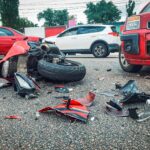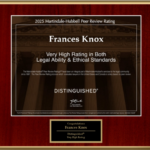The aftermath of a car accident can feel scary as you try and understand who is hurt and the damage done to your vehicle. But the feelings become even worse when you realize the other driver left the scene and you’ve been involved in a hit and run.
Know that leaving the scene of an accident is illegal, and if that driver is caught, they’ll face criminal prosecution. But if you’re the victim, you might start fearing you’ll have to pay for any injuries and damages to your car yourself.
How Can I Protect Myself After A Hit And Run Accident?
The best way to protect yourself before any car accident is to have the proper car insurance and even an uninsured motorist policy. This can help you pay for medical bills and car repairs in a crash.
If you’re involved in a hit-and-run accident, first get any needed medical attention right away.
Next, take photos of the accident scene, any damages to your car, and any injuries you suffered. You’ll also want to see if any nearby traffic cameras could help identify the vehicle and driver who fled the scene.
Then, write down any details you remember; the make or color of the car, the weather, and what direction the vehicle was traveling in.
How Can An Attorney Help Me After A Hit And Run Accident?
Even though the other driver in the accident is currently unknown, an experienced attorney who understands the civil rights North Carolina grants victims of hit and runs can help you receive the highest possible financial compensation to pay for the accident.
Call The Knox Law Center for a free consultation to understand better how we can help you and your case.
We have worked multiple angles in past hit-and-run cases to help our clients. First, we assist the police with their search for the hit-and-run driver. We also can negotiate with your own insurance company on your behalf to ensure you receive a compensation package that will pay for all your medical bills and any damage to your vehicle.
In the tragic cases where the hit-and-run accident was fatal, we can help file a civil wrongful death lawsuit on behalf of the deceased’s estate or next of kin.






